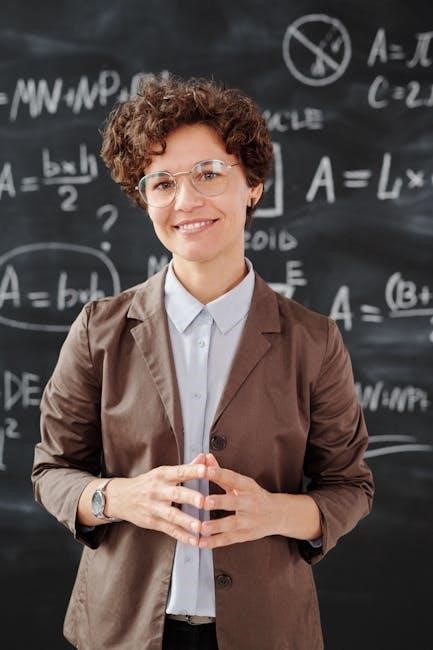Definition and Importance of Specialized Academic Instruction
Specialized academic instruction is a tailored approach addressing diverse learning needs, ensuring students receive targeted support to meet educational goals, fostering inclusivity and empowerment.
1.1. What is Specialized Academic Instruction?
Specialized academic instruction refers to tailored educational strategies designed to meet the unique learning needs of students, often those with diverse abilities or requirements. It emphasizes a student-centric approach, adapting content, methods, and pacing to ensure individual progress. This instruction is typically data-driven, leveraging assessments to identify strengths and areas for growth. By focusing on specific skills or subjects, it aims to bridge learning gaps and enhance academic outcomes. SAI often integrates technology, personalized plans, and collaborative efforts between educators, students, and families. Its goal is to create an inclusive, supportive environment where every learner can thrive, regardless of their background or challenges. This approach is particularly vital in addressing the varied demands of modern education.
1.2. The Role of Specialized Instruction in Modern Education
Specialized academic instruction plays a vital role in modern education by addressing the diverse needs of students, ensuring equitable learning opportunities, and fostering academic excellence. It adapts to the evolving demands of education, incorporating innovative strategies to engage learners and enhance outcomes. By tailoring instruction to individual or group needs, it promotes deeper understanding and skill mastery. This approach also supports inclusivity, catering to students with varying abilities, backgrounds, and learning styles. As education becomes more personalized, specialized instruction bridges gaps, preparing students for future challenges and empowering them to succeed in an ever-changing world. Its adaptability and focus on student-centric learning make it indispensable in contemporary educational systems.
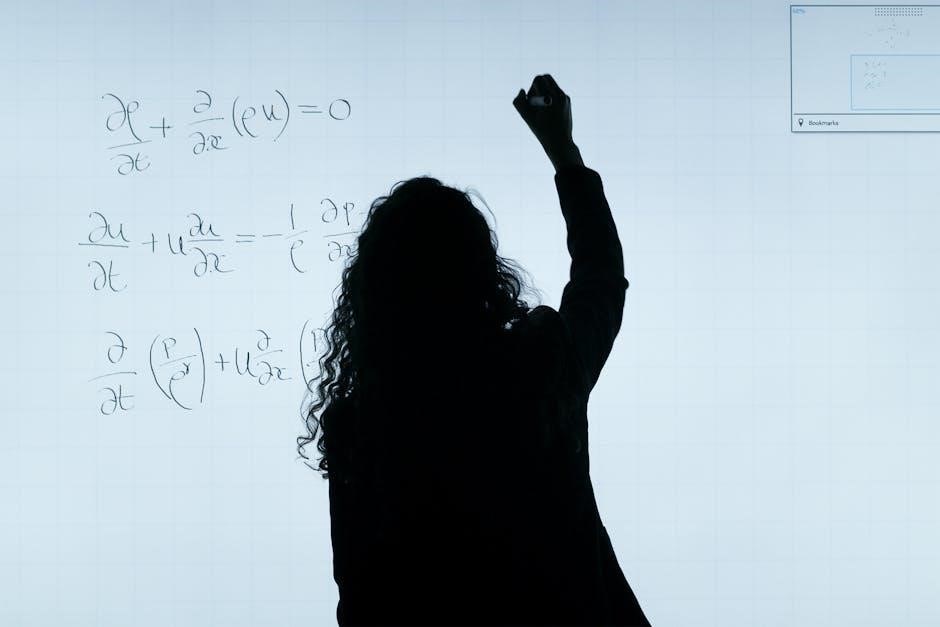
Methods of Specialized Academic Instruction
Specialized academic instruction employs tailored methods like personalized learning, technology integration, and adaptive teaching strategies to meet diverse student needs, enhancing engagement and academic outcomes effectively.
2.1. Personalized Learning Approaches
Personalized learning approaches tailor instruction to individual student needs, leveraging assessments, learning plans, and adaptive technologies. These methods allow educators to address unique strengths, challenges, and learning styles, fostering deeper engagement and improved outcomes. By incorporating flexible pacing and differentiated instruction, personalized learning ensures students receive targeted support, enabling them to progress at their own pace. This approach also encourages self-directed learning, equipping students with essential skills for lifelong education. Through personalized strategies, educators can bridge gaps in understanding and cater to diverse learning preferences, creating a more inclusive and effective educational environment.
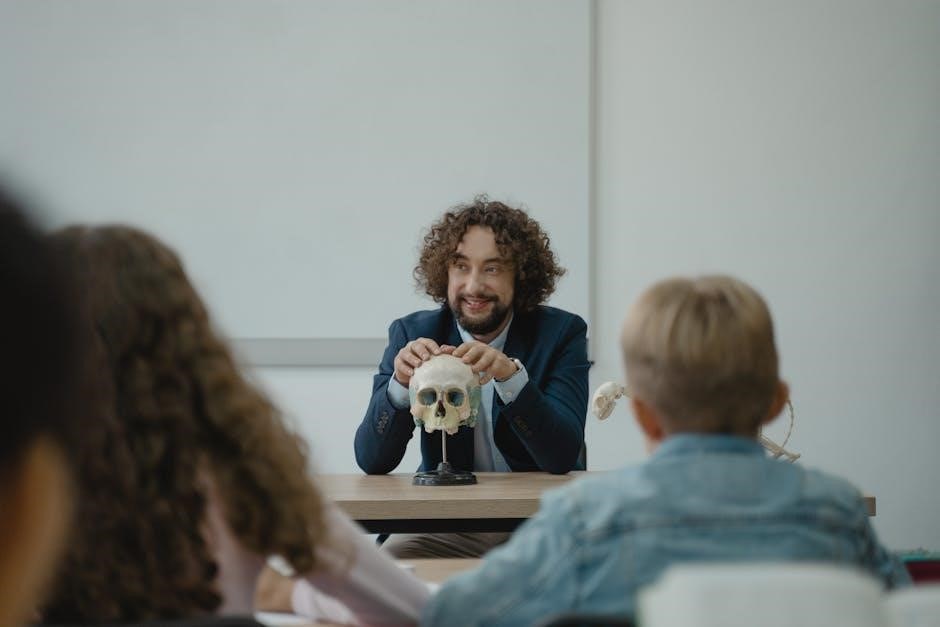
2.2. Technology-Integrated Teaching Strategies

Technology-integrated teaching strategies enhance specialized academic instruction by incorporating digital tools to create interactive and adaptive learning experiences. Educators utilize AI-driven platforms, machine learning algorithms, and data analytics to personalize instruction, ensuring each student’s unique needs are met. Multimedia resources, such as virtual simulations and interactive content, engage students and deepen understanding. Additionally, technology facilitates real-time feedback and progress tracking, allowing for timely interventions. Tools like AI tutors and adaptive software provide supplementary support, while virtual learning environments expand accessibility for diverse learners. By integrating technology, educators can create dynamic, inclusive classrooms that foster innovation and cater to the evolving demands of modern education, ensuring students are well-prepared for future challenges.

The Role of Educators in Specialized Instruction
Educators play a crucial role in specialized instruction by tailoring teaching methods to meet diverse student needs, leveraging technology, and fostering inclusive learning environments.
3.1. Skills and Qualifications Required for Specialized Teaching
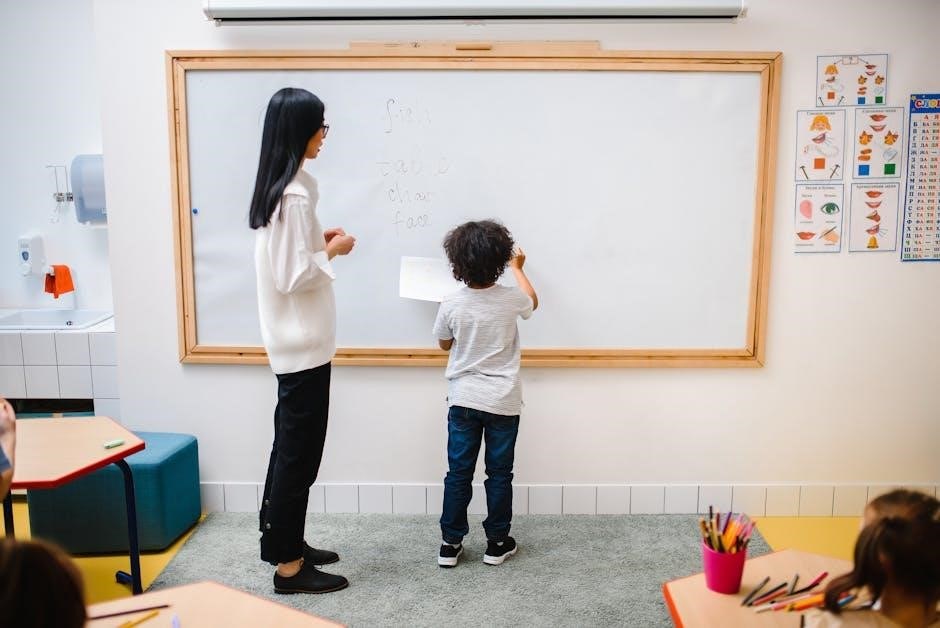
Specialized teaching demands educators with advanced subject matter expertise, instructional design skills, and the ability to adapt to diverse learning needs. Proficiency in technology-integrated strategies and data analysis is essential for personalized learning. Teachers must also possess strong communication and interpersonal skills to collaborate with students, parents, and colleagues. Emotional intelligence and empathy are critical for fostering inclusive environments. Additionally, specialized instructors often require certifications or advanced degrees in their field. Continuous professional development ensures they remain updated on best practices and emerging technologies. These qualifications enable educators to deliver high-quality, tailored instruction, addressing the unique challenges and opportunities in specialized academic settings effectively.
3.2. Creating Engaging Learning Environments
Creating engaging learning environments in specialized academic instruction involves fostering interactive and inclusive spaces that cater to diverse student needs. Educators use personalized learning approaches, technology-integrated tools, and collaborative activities to stimulate student participation. Incorporating real-world examples and hands-on experiences enhances relevance and motivation. Flexibility in instructional strategies allows teachers to adapt to individual learning styles, ensuring all students feel supported. Positive reinforcement, clear communication, and regular feedback further encourage active engagement. By designing dynamic and adaptive learning environments, educators can help students build confidence, critical thinking skills, and a deeper connection to the material, ultimately enhancing academic outcomes and lifelong learning capabilities.
Challenges in Implementing Specialized Instruction
Specialized instruction faces challenges like adapting to new technologies, evolving student needs, and changing educational policies, requiring continuous teacher training and curriculum updates.
4.1. Resource Limitations and Accessibility Issues
Resource limitations and accessibility issues often hinder the implementation of specialized academic instruction. Many schools face budget constraints, limiting access to advanced technologies, trained educators, and specialized materials. Additionally, rural or underserved areas may lack infrastructure, creating disparities in educational opportunities. Accessibility barriers, such as inadequate accommodations for students with disabilities, further complicate the delivery of tailored instruction. These challenges highlight the need for equitable resource distribution and innovative solutions to ensure all students can benefit from specialized learning experiences.
4.2. Balancing Specialized and General Education Needs
Balancing specialized and general education needs is a critical challenge in modern education. While specialized instruction focuses on individualized learning, general education aims to provide a broad, foundational curriculum. Educators often struggle to integrate these two approaches without compromising the quality of either. Time constraints, curriculum overload, and varying student needs exacerbate this issue. Additionally, ensuring that specialized programs do not isolate students from their peers requires careful planning. Schools must adopt flexible frameworks and collaborative strategies to maintain a cohesive learning environment that addresses both specialized and general educational goals effectively.
Future Trends in Specialized Academic Instruction
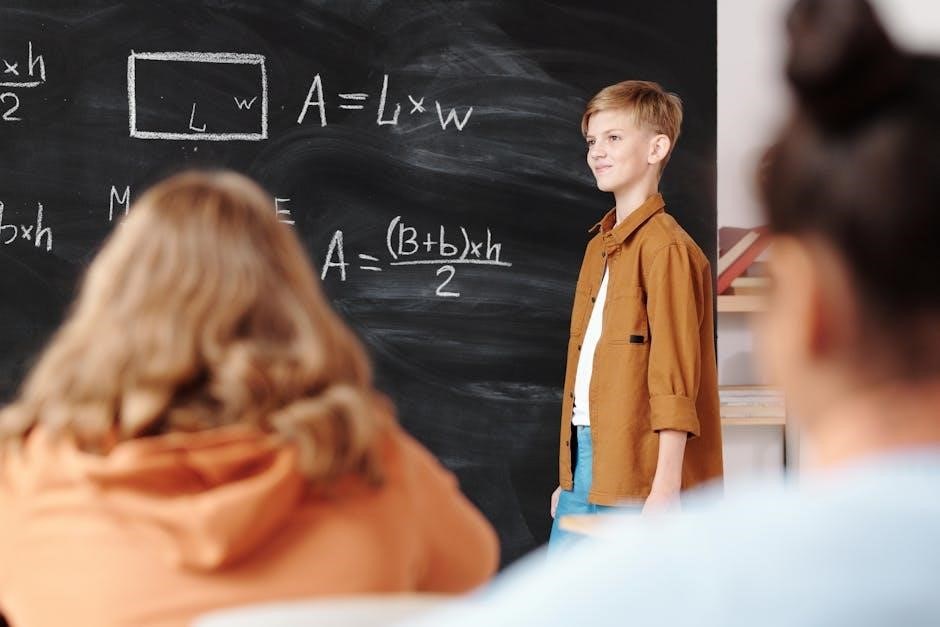
Future trends include AI-driven personalized learning, real-time data analytics, and adaptive curricula. These advancements aim to enhance accessibility, engagement, and tailored educational experiences for diverse learners globally.
5.1. The Impact of AI and Machine Learning
AI and machine learning are revolutionizing specialized academic instruction by enabling personalized learning experiences. These technologies analyze student data to tailor curricula, identify learning gaps, and provide real-time feedback. Adaptive assessments and intelligent tutoring systems enhance engagement and outcomes. AI also automates administrative tasks, allowing educators to focus on teaching. Furthermore, machine learning algorithms can predict student performance, enabling early interventions. Integrating AI tools, such as chatbots and virtual assistants, supports accessibility and inclusivity. This shift not only improves efficiency but also ensures that diverse learners receive targeted support, fostering academic success and lifelong skills. As AI evolves, its role in education will expand, creating more dynamic and effective learning environments.
5.2. Evolving Student Needs and Educational Policies
Evolving student needs and educational policies are reshaping specialized academic instruction. As diverse learners require more personalized approaches, policies now emphasize inclusivity, accessibility, and equity. Modern educational frameworks integrate technology and adaptive teaching methods to address these needs. Additionally, there is a growing focus on mental health and socio-emotional learning, reflecting the holistic development of students. Educational policies are also adapting to global challenges, such as sustainability and digital literacy, ensuring curricula remain relevant. These shifts require educators to stay updated on best practices and policy changes, fostering a dynamic and responsive educational system that prepares students for future challenges and opportunities.

